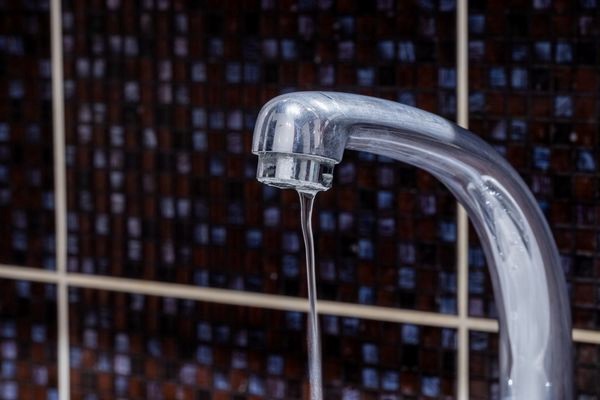Home & Family
Leaky Faucets? Does It Cause Considerable Water Waste?

Leaky faucets are a common household issue that most of us tend to ignore. While a dripping faucet may not seem like a big deal, it can actually result in significant water waste and increased water bills. In this article, we will discuss the impact of leaky faucets on water waste and how it affects the environment and our wallets.
The Consequences Of A Leaky Faucet
A leaky faucet is not only a waste of water, but it can also lead to a number of negative consequences, both for the environment and for your pocketbook.
Environmental Consequences
Water is a finite resource, and its overuse can lead to depletion of groundwater reserves and decreased water levels in rivers and lakes. The constant dripping of a leaky faucet can add up over time, and can have a significant impact on the environment, particularly in regions that are experiencing water scarcity. Additionally, increased water usage leads to increased energy consumption, as more water must be pumped and treated to meet demand. This, in turn, contributes to greenhouse gas emissions, further exacerbating the problem of climate change.
Financial Consequences
A leaky faucet may seem like a small and harmless problem, but it can quickly add up and cause considerable financial consequences. The constant dripping of water not only wastes a significant amount of water, but it also results in higher water bills. Here are some financial consequences of leaky faucets that everyone should be aware of:
- Increased Water Bills:
The most obvious financial consequence of a leaky faucet is an increase in your water bill. A single dripping faucet can waste up to 3,000 gallons of water per year, and this can quickly add up to hundreds of dollars in extra water costs. The cost of water is determined by your local water authority, but the average cost is around $2 to $5 per 1,000 gallons. So, even a small leak can result in a substantial increase in your water bill.
- Expensive Repairs:
If a leaky faucet is not addressed in a timely manner, it can result in more expensive repairs down the line. Leaks can cause damage to pipes, fixtures, and other parts of your plumbing system. If a leak goes unnoticed for a long time, it can result in significant water damage to your home and require expensive repairs.
- Wasted Resources:
The financial consequences of leaky faucets go beyond just increased water and energy bills. When water is wasted, valuable resources are also being wasted. Water is a finite resource, and it takes a lot of energy and resources to process and distribute it to homes. By letting water leak and go to waste, we are not only increasing our own costs, but we are also contributing to the depletion of this valuable resource.
Preventing Water Waste From Leaky Faucets
The good news is that fixing a leaky faucet is usually a simple and inexpensive task. In many cases, it can be done by the homeowner, and requires only a few tools and some basic plumbing knowledge. Here are some steps to help prevent water waste from leaky faucets:
- Check For Leaks Regularly
Perform regular checks for leaks, and make repairs as soon as possible. A leaky faucet can be identified by the sound of dripping water or by water stains on the sink or counter.
- Replace Worn Out Washers And O-Rings
A common cause of leaky faucets is a worn out washer or O-ring. Replacing these components is often a simple and inexpensive fix that can be done by the homeowner.
- Install Low-Flow Faucets
Low-flow faucets use less water per minute, reducing the amount of water wasted from leaks. Consider upgrading to low-flow faucets to further reduce water waste.
Takeaway!
It is rightly mentioned that leaky faucets not only have environmental consequences but also create a major impact on your pocket. Understand the ways to prevent them in the first place to avoid creating a deep hole in your pocket!
-

 Health & Fitness6 days ago
Health & Fitness6 days agoBudget Cuts Slash Vital Health-Tracking Programs in the U.S.
-

 Business5 days ago
Business5 days agoUS Stock Market Soars on Positive Jobs Data and Trade Optimism
-

 Healthcare6 days ago
Healthcare6 days agoMajor Cuts to U.S. Health Programs Raise Concerns Over Public Health Tracking
-

 Business6 days ago
Business6 days agoUS Stock Market Soars as Jobs Report Surprises and Trade Tensions Ease
-

 Business3 days ago
Business3 days agoS&P 500 Rallies as Fed Holds Rates Steady Amid Trade Talks
-

 Stock Market4 days ago
Stock Market4 days agoUS Stock Market Dips as Tariff Fears Resurface
-

 Civil Rights3 days ago
Civil Rights3 days agoSupreme Court Upholds Controversial Ban on Transgender Military Service
-

 Politics5 days ago
Politics5 days agoHouse Passes Controversial Trump Budget Bill Amidst Bipartisan Tensions















